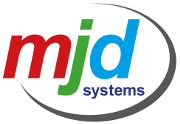What is Microsoft 365 and is it suitable for my business?
Following on from a blog post last month on what is the cloud, we are taking a look at Microsoft’s 365 cloud services and provide you with some useful information to help you make the decision on whether 365 is right for your business. Microsoft 365 can help you to become more productive in the new work from home environment we find ourselves in and take us through to the future hybrid working offices with more people continuing to work from home for a percentage of their working week.
Microsoft 365 is a cloud based productivity solution software which is subscription based. This means you pay a monthly fee per user and you get the latest version of the Microsoft Office software. There are different levels of license which you can choose to purchase depending on what you require. Microsoft 365 allows you remain connected and stay productive while working remotely, by allowing collaboration on work projects with colleagues and allowing you to store your company data which all employees can access without the need for a server or remote access to PCs in your office. The subscription service also keeps your business agile and if you need to increase in size, you are not limited by your current IT hardware and infrastructure and require large capital costs for new servers and software, simply add a Microsoft 365 license and install it on the new device for the new employee!
There are 4 main packages to consider: Business Basic, Standard, Premium and Apps for Business.
- Business Basic – this gives you business email, access to Microsoft Teams, web based Office apps and cloud storage. This is perfect if you just need the ability to communicate with colleagues and clients.
- Business Standard – this also includes access to the desktop versions of the Office apps on top of the Basic offering but does not include the device management and advanced security options.
- Business Premium – this includes all of Basic and Standard, but with the added Advanced Security and Device Management and this makes it perfect for SME use and the product we recommend if you require more than the basic email address.
- Apps for Business – if you simply require the desktop versions of the Office suite, apps for business is designed for just that. Always have access to the latest version of the Office suite.
Another question we are often asked is how reliable is Microsoft 365. To help our clients understand we explain that if your on premise server were to go down, you’d be without your data until we could resolve the issue or recover your data from your backup to get you running again. However, with Microsoft 365 as they have a large cloud network of servers around the world, if there is an outage on one server it will move to another server in that data centre. Then if the data centre fails, it would fail over to a secondary location. So it would be rare that you would not be able to access your data due to an outage on the cloud server side.
Sometimes, it can be difficult to adjust your thoughts onto paying a monthly cost per user when previously you would have a capital outlay in one payment. What is important to remember and to consider is that you are shifting from working with what will become outdated technology at the end of its life before you invest in new equipment to always having access to the latest software and technology. So, rather than the unknown of what a future upgrade project might cost, you can now budget and plan for the known cost of your 365 subscription each month for the latest software and cloud technology that works to make your business more efficient.
The migration to Microsoft 365 from your server based operations can be a daunting thought. However, the switch is a sensible choice if you are looking to increase your flexibility and allows you to move away from the need to make capital investments in servers to store your own data or run Exchange. Microsoft 365 offers you flexibility to change your IT requirements to fit with your growing business month by month if required. Your Managed Service Provider (MSP) will be able to talk your through and plan your migration to 365 to ensure that you experience minimal downtime and migration work is scheduled for out of hours. Downtime cannot totally be avoided, however with the right planning and teamwork with your MSP minimal disruption can be achieved usually less than an hour downtime in total. This is what we strive for at MJD in our 365 migrations, each stage is planned with you to best suit your current business activities to ensure the impact on your business operations is minimal.
This blog post will help you to begin to consider and decide if 365 is right for your business, but the Team here at MJD are always happy to discuss your options and make sure you are choosing the right solution to make IT work for YOU!
